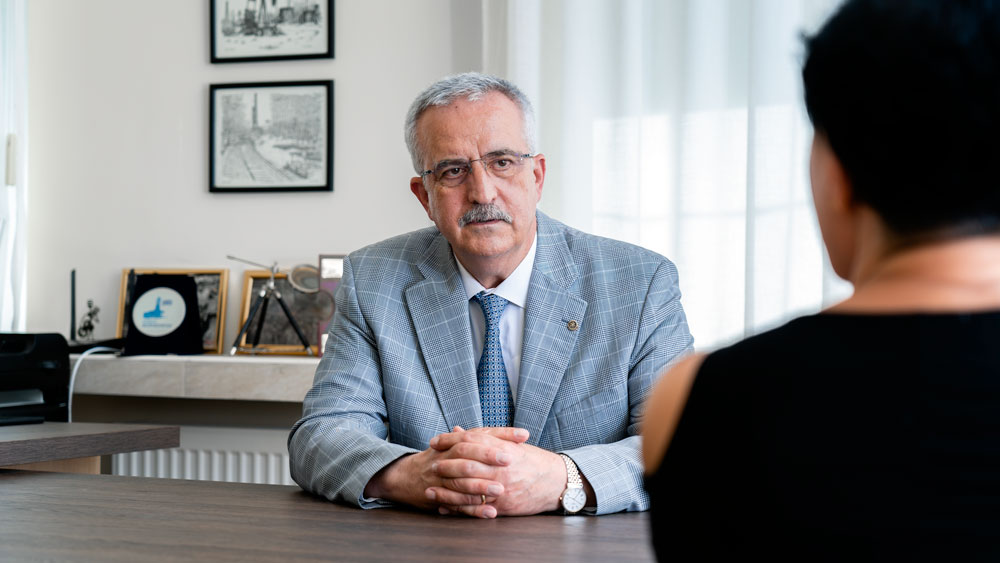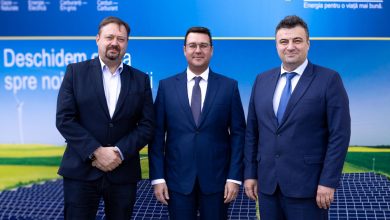UPG’s Major Projects for the Use of Renewable Energy
The Petroleum-Gas University of Ploiesti (UPG) is the first higher education institution in South Muntenia Region to sign a financing agreement worth around RON 30mln for the improvement of the university educational infrastructure through the Regional Operational Program 2014-2020. Also, other major investments in this prestigious higher education institution will be able to support the process of transition to the use of renewable energy sources, currently three projects falling within this strategy being shaped.
The project for the improvement of the university educational infrastructure through the Regional Operational Program 2014-2020 is aimed at the endowment of Building I, which belongs to the Faculty of Petroleum Technology and Petrochemistry, with tradition within UPG Ploiesti, which has launched a master’s program in English, a continuation of the license program in English. The period of implementation of this project is 42 months, expecting investments worth a total of RON 27,955,222.01. Of this amount, over RON 23 million constitutes the contribution from the European Fund for Regional Development, RON 3.6 million represents the allocation of the state budget, and the eligible co-financing of the beneficiary is almost RON 560,000.
“This project will be completed by a second one, which is currently in the period of technical and financial evaluation, so that UPG will sign financing agreements worth RON 60mln, in conditions in which other universities in South Muntenia Region have found it more difficult to submit projects, and others have not submitted any. From this point of view, UPG Ploiesti has maintained its status as the most important university in the region,” said the Director of ADR South Muntenia Liviu Musat who attended the event for signing this agreement with UPG Rector Mihai Pascu Coloja and the President of Prahova County Council Bogdan Toader, a graduate of UPG.
1,170 projects have been submitted so far in the South Muntenia region (including the applications dedicated to SUERD), under which non-reimbursable funds of over RON 7.8bn are requested. Of these, 303 applications, with a requested value of over RON 1.9bn, were submitted by applicants in Prahova County. At the level of Axis 10, for the improvement of the educational infrastructure, 23 projects are submitted for financing, under which funds worth over RON 170mln are requested.
“The Petroleum-Gas University of Ploiesti is concerned and involved in the process of transition to the use of renewable energy sources, three projects falling within this strategy currently being shaped,” the Prorector of UPG Mihail Minescu mentioned.
The first project that can be implemented very soon (early 2020) is the one for the use of solar energy. The project consists of covering two of the car parks with photovoltaic panels that will produce the energy necessary for the functioning of the university campus. Thus, the university will become an electricity producer with an installed power of around 300 KW. The produced electricity will cover the consumption needs of the university and the surplus will be capitalized by other consumers by selling it on the OPCOM platform. This project is also implemented through the ESCO program (Energy Services Company) and will be financed by Electrica Furnizare. The project includes the installation of charging stations for electric cars.
The second project is financed from Norwegian funds through the Innovation Norway program – a hybrid system for energy efficiency using geothermal energy applied in UPG campus in Ploiesti. The project is in the last stage of technical evaluation and the working visit of the group of foreign and Romanian experts will take place during October 28 – November 30, 2019. The total value of the project is EUR 2.2mln, of which EUR 300,000 is the co-financing incurred by Prahova County Council and EUR 45,000 is that of the company PECEF Tehnica. The project consists of heating two buildings within UPG using heat pumps, with the thermal energy of water extracted from 8 wells dug at a depth of around 100 meters. The investment will result in decreasing the demand for thermal energy obtained in conventional gas-fired boilers and thus the decrease in CO2 emissions.
A third project, submitted for evaluation a month ago, is one in which a consortium from three countries participates: Romania (which will finance the project with EUR 250,000), the Netherlands and Germany. Our country is represented by the Petroleum-Gas University of Ploiesti, which is also coordinator of the project. UPG’s partner is Veolia Energie Romania and the subcontractor is the University of Oklahoma. The partners from the Netherlands are Delft University of Technology and the Water Research Institute KWR – Bridging Science to Practice and the partner from Germany is the German Centre for Geological Research. The project is aimed to conduct a feasibility study for a system for the storage of thermal energy coming from hot water obtained following the production of thermal and electrical energy during summer, when no heat is supplied, by introducing the hot water in the soil where it will be stored and use this energy for heating during winter, using the water pre-heated in the soil in the thermal energy production system that will be used by population through the district heating system. Romania was included in this consortium because it has a well-developed district heating system compared to the two partner countries.
“I believe that in this way the University can be an important vector for the local community to get involved in such projects, leading to the decrease in the current degree of pollution,” the Prorector of UPG Ploiesti Mihail Minescu has stated.
Currently, UPG has relations of collaboration with countries in the European Union and beyond, based on 71 cooperation agreements with institutions from: Portugal, Bulgaria, Greece, Republic of Moldova, Kazakhstan, Turkmenistan, Lebanon, China, Serbia, Belarus, Azerbaijan, USA, Tunisia, India, Slovenia, Poland, France, Italy, Ukraine, Morocco, Cuba, Vietnam, Egypt.
In 2018-2019, 15 new collaboration agreements were concluded with the university and economic environment. The mobility number was 95 (students and teachers), the total amount being EUR 172,567. In the new academic year, the mobility will amount to 202, for which the total amount of EUR 812,668 will be granted. Also, two grants have been won with the donor states Norway, Iceland and Lichtenstein, with a total value of over EUR 150,000, and following a donation of the Timken Foundation, of EUR 80,000, an online technology will be implemented in an amphitheatre that will allow hearing English courses from universities around the world.







